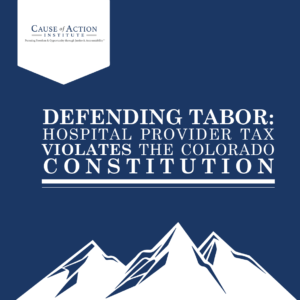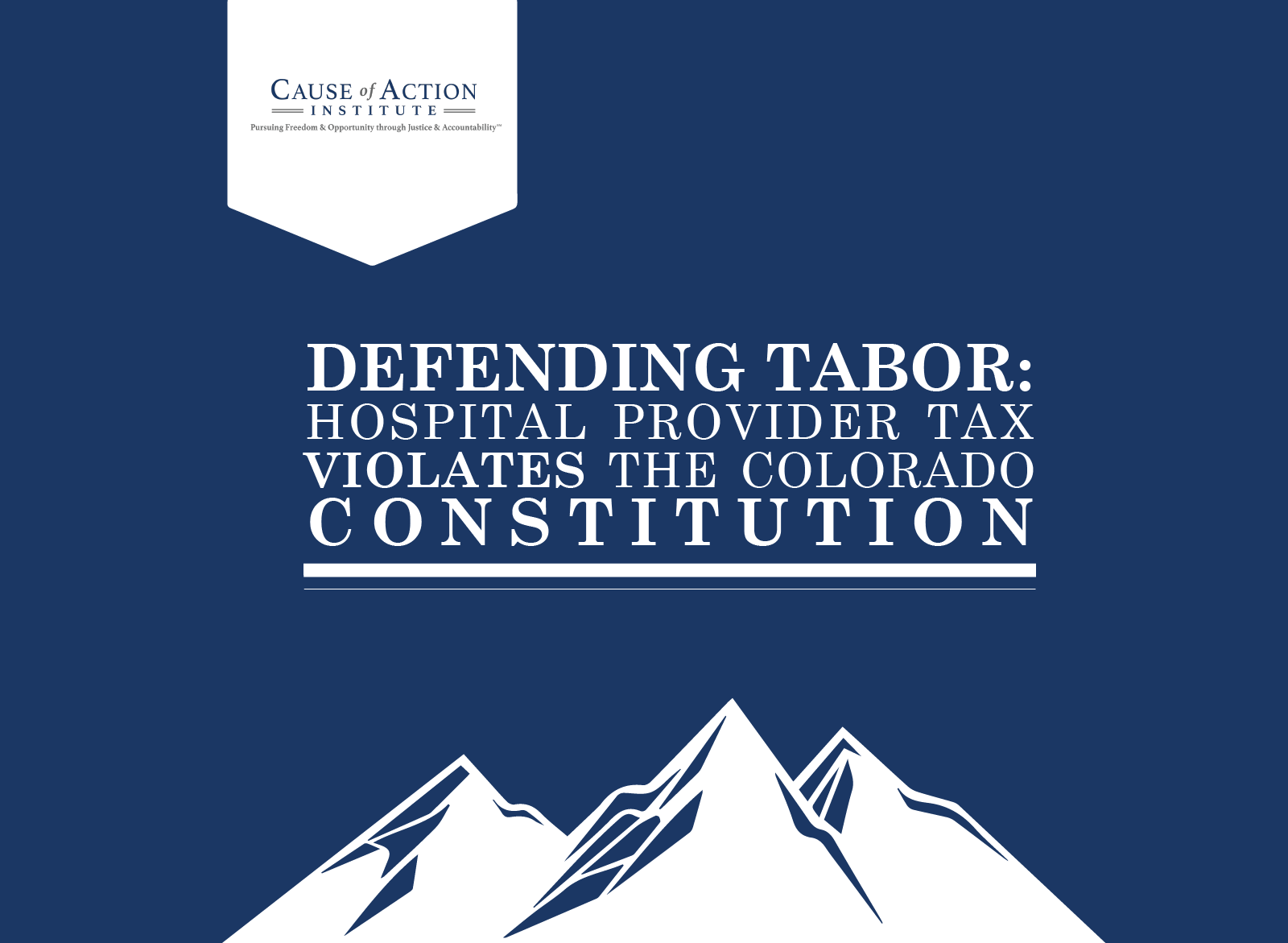The Colorado Open Records Act (CORA) requires nearly all public records be made available to the public except for a few exceptions. But, according to the Colorado Department of Law, if an individual or entity is in litigation with the state, they’re no longer allowed to utilize CORA to secure any public documents.
Cause of Action Institute (CoA Institute) represents the TABOR Foundation and three other plaintiffs in a lawsuit against the state of Colorado and several state agencies challenging the constitutionality of the state’s Hospital Provider Charge, which the state imposes on Colorado hospitals to increase Medicaid funding from the federal government. Although some documents from the government have been provided to the plaintiffs in discovery, CoA Institute also filed a CORA request for records that should, in part or full, be released under CORA.
In response, the state of Colorado’s Department of Law stated that it had already provided all documents responsive to the CORA request in discovery, but it also took the position that it need not respond at all to the CORA request because of the ongoing litigation.
In our view, the state’s response misapplies the applicable law and, if left unchallenged, could establish a dangerous precedent as it relates to transparency and the use of CORA. In other words, if the position taken by the Colorado Department of Law is adopted in other matters, entities that have ongoing litigation before the state could be prevented from using CORA to supplement and investigate the facts relevant to their cases. This anti-transparency policy has obvious negative implications for media outlets and government watchdog organizations to conduct their vital work.
Matt Frendewey is the Director of Communications at Cause of Action Institute.
Resources:
Click here to visit the TABOR project page.
Click here to download the original CORA records request and subsequent denial letter.
Click here to download CoA’s response to the CORA request denial letter.


